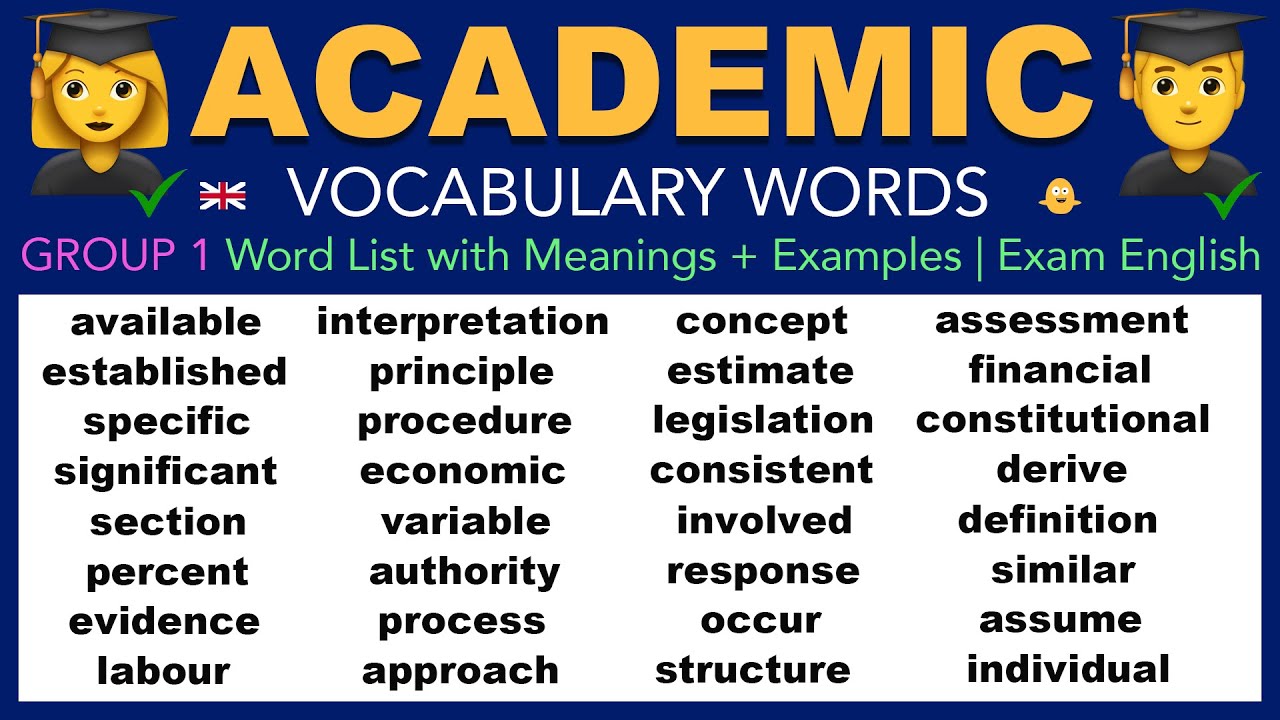Unlocking Academic Success: The Power of Academic Vocabulary
The Importance of Academic Vocabulary
In the realm of education, vocabulary plays a crucial role in academic success. Academic vocabulary refers to the specialized words and phrases used in academic settings and disciplines. Mastering academic vocabulary not only enhances students' understanding of subject matter but also empowers them to effectively communicate their ideas and thoughts.
Benefits of Academic Vocabulary
Acquiring a robust academic vocabulary offers numerous advantages:
- Comprehension: Academic vocabulary enables students to comprehend complex texts and academic materials more effectively. They can grasp the subtleties of disciplinary concepts and engage in higher-level thinking.
- Expression: By incorporating academic vocabulary into their spoken and written language, students can articulate their ideas with precision and clarity. This skill is vital for presenting arguments, participating in discussions, and producing well-structured academic papers.
- Critical Thinking: Academic vocabulary fosters critical thinking skills by providing the tools necessary to analyze and evaluate information from various sources. Students can identify key points, detect biases, and draw connections between different concepts.
- Standardized Tests: Many standardized tests, such as the SAT or ACT, assess students' understanding of academic vocabulary. Proficiency in these specialized words can significantly improve test scores and open doors to educational opportunities.
- Career Readiness: In professional settings, a strong command of academic vocabulary is valued. It allows individuals to engage in sophisticated conversations, comprehend complex documents, and excel in their chosen fields.
Strategies for Developing Academic Vocabulary
Here are some effective strategies to help students unlock the power of academic vocabulary:
- Explicit Instruction: Teachers should explicitly teach academic vocabulary words, providing clear definitions, examples, and context. This can be done through direct instruction, word walls, or vocabulary notebooks.
- Contextual Clues: Encourage students to use contextual clues, such as surrounding words or sentences, to infer the meanings of unfamiliar academic vocabulary words. This fosters independent learning and vocabulary acquisition skills.
- Word Maps: Have students create word maps or concept maps to visualize the relationships between academic vocabulary words and related concepts. This aids in deepening their understanding and retention of the words.
- Reading Widely: Exposure to a wide range of texts, including academic articles, textbooks, and literature, exposes students to different types of academic vocabulary. Encourage regular reading and provide opportunities for discussion and reflection.
- Writing Practice: Assign writing tasks that require the use of academic vocabulary. Encourage students to incorporate newly learned words into their writing to reinforce their understanding and application.
- Collaborative Learning: Engage students in collaborative activities, such as group discussions and projects, that involve the use of academic vocabulary. This promotes peer-to-peer learning and reinforces vocabulary usage.
Conclusion
Mastering academic vocabulary is a key component of academic success. The ability to comprehend and utilize specialized words enhances students' understanding, communication skills, critical thinking abilities, and overall educational experience. By implementing effective strategies, educators can unlock the power of academic vocabulary and empower students to thrive in their academic and professional pursuits.
